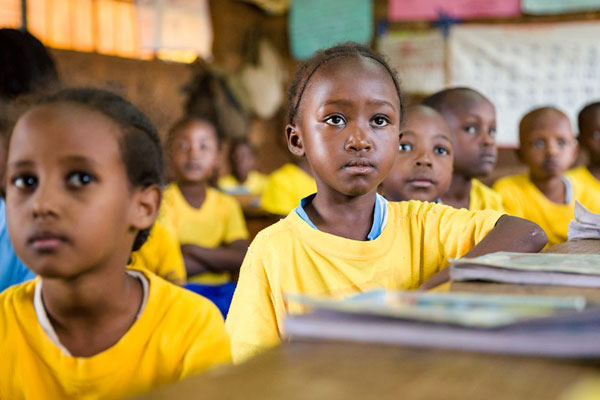Parents should take interest in what their children read
By Kennedy Buhere, September 24, 2019Last week, the Ministry of Education issued a directive to field officials to be on the lookout for schools buying unapproved textbooks because some may contain content unsuitable for learners.
“You are, therefore, required to bring to the immediate attention of all principals and headteachers that only textbooks listed in the Orange Book are allowed for use in schools,” read the circular signed by Basic Education director-general Elyas Abdi.
Kenya, like any other economy, has educational objectives to be realised through effective delivery of the prescribed curriculum in schools. The government accordingly approves textbooks considered capable of meeting the objectives.
If used in the learning process novels, anthologies of poems, plays, essays and short stories are, strictly speaking, textbooks. Approval of a textbook for use in school is ipso facto, an instructional material.
Formal education is one of the most powerful forces in the lives of children. Part of school responsibility is building the character of learners.
Education is not just about developing the mind and intellect, it is also about forming or developing their character, values, attitudes and behaviour.
The formation of character goes hand in hand with development of knowledge, skills and other abilities children may have.
This is why literature, English and, in our situation, Kiswahili are so important in the curriculum. Plato and Horace viewed literature a source of delight and education.
It is the educational dimension of literature that has attracted educationists to view it as a legitimate subject of study.
Literature is a wellspring of the values, morals and habits that society thinks important in imparting to the next generation and the next.
It is the reason why the subject plays a dynamic role in the classroom from aiding learning in different subject areas, developing critical thinking skills and teaching moral lessons.
For purposes of this argument, literature gives students appreciation about their own cultural heritage as well as those of others; it helps students develop emotional intelligence and creativity; it nurtures growth and development of the student’s personality and social skills; and transmits the heritage of mankind from a generation to the next.
Children are impressionable during their formative years. Depending on the kind of literature they read at this stage, it can help them develop into caring, intelligent, and friendly people or intelligent but unfriendly people.
This ambiguity made Plato in particular to be wary of the kind of stories society, particularly mothers, tell children. He appreciated the power literature has in shaping culture, character and behaviour.
Human beings live by modelling behaviour. They see behaviour that seems to be rewarded or go essentially unpunished, and they will imitate it. This is a perfect form of monkey see, monkey do.
Graphic descriptions of violent scenes or incidents as the logical outcome of character orientation may be artistic.
It is, however, not good for young impressionable children to watch or read. It might excite, but not have the educational value we seek to impart in children.
However, it doesn’t mean all textbooks outside the Approved List or the Orange Book are not suitable for learners.
The list cannot contain all the textbooks suitable for learners in the whole published world of children’s books.
But parents must be careful when buying textbooks for their children, particularly those not in the Approved List.
Graphic descriptions of violence and certain behaviours are certainly not suitable for gullible minds. The danger of imitating what they read or tolerating the behavior they see in the textbooks, is high.
Essentially, people learn by watching others and then imitating these actions.
The idea about suitability of textbooks to learners—be they in primary or secondary school—is not academic but practical. It is not about what the children are reading, but about the future. The writer is Communications Officer, Ministry of Education
